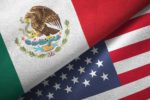
Visit Our Sponsors |
|
|
|
|
|
|
|
|
|
|
|
|
|
|
|
|
|
|
|
|
|
|
|
|
|
|
|
|
|
|
|
|
|
|
|
|
|
|
|
|
|
|
|
|
|
|
|
|
|
|
|
|
|
|
|
|
|
|
|
|
The past four years have brought a slew of new complexities to global trade and with it, supply chains. For 2021, these three areas will be critical to watch.
The Biden Administration
Debate surrounding tariffs and trade policy is one that the world has been having for centuries. Historically, these policies have been anchored by cornerstone tenets of global trade like multilateral trade, coalition and negotiation. These past four years, American companies with global supply chains have learned how to navigate through a sea of opposing tenets such as unilateralism, protectionism and dissension. Due to this, global supply chains experienced increased shipment delays and costs as well as significant geographical re-locations.
The Biden administration has already demonstrated its will to prioritize allies and build policy on both security and environmental considerations. From a supply-chain perspective, companies could perhaps see a reduction in certain tariffs such as the 232 Steel tariffs, an extension of exclusions granted for the 301 tariffs or even favorable treatment toward supply chains that mitigate carbon emissions.
Investment Regulations
In the early months of the new year, a global increase is expected of regulations surrounding foreign investment. In the U.S., the Committee on Foreign Investment (CFIUS) will expand jurisdiction and pre-closing declarations. CFIUS is a committee made up of 16 inter-government agencies authorized to review certain transactions involving foreign investment in U.S. transactions, in order to determine the effect of such transactions on national security.
These updated regulations will not only impact foreign mergers and acquisitions, but also foreign investment in U.S. companies. Other countries such as Japan, the U.K. and Germany have published mandates on screening foreign investments. It’s important to be aware of these foreign investment regulations as they pertain to your global supply chain — especially if receiving funding from overseas — no matter where your operations are established.
Sanctions Enforcement
In addition to continued sanctions on Huawei Technologies and its affiliates, this year will see an increase in human rights-related sanctions such as those enforced on the Xinjiang province of China and the Global Magnitsky Act sanctions. The U.K. announced standalone sanctions against 47 regimes in July of 2020.
Companies should continue to develop, document and execute specific procedures and train their employees to monitor their supply chains for any deceptive practices.
Outlook
Along with new trade policies from the Biden administration, U.S. companies can expect to see an increased focus surrounding foreign investment and sanction controls. Staying informed, involved and flexible continue to be key measures to global supply-chain success.
Gabrielle Griffith is director of BPE Global.
RELATED CONTENT
RELATED VIDEOS
Timely, incisive articles delivered directly to your inbox.







